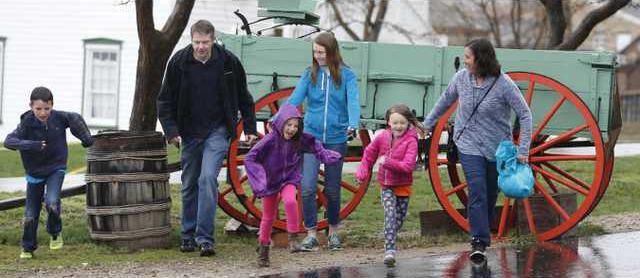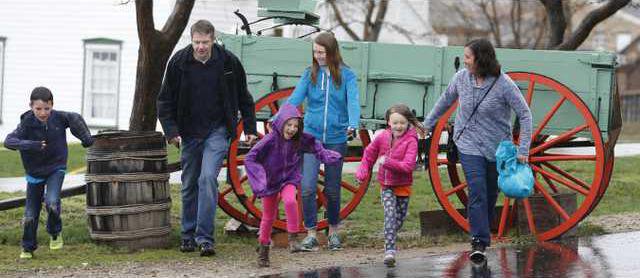SALT LAKE CITY — After Utah passed the country's first law legalizing so-called free-range parenting, groups in states from New York to Texas are pushing for similar steps to bolster the idea that supporters say is an antidote for anxiety-plagued parents and overscheduled kids.Free-range parenting is the concept that giving kids the freedom to do things alone — like explore a playground or ride a bike to school — makes them healthier, happier and more resilient.It surfaced nearly a decade ago, when Lenore Skenazy touched off a firestorm with a column about letting her then-9-year-old son ride the New York City subway alone. Since then, she's become a vocal advocate for free-range parenting.Critics say letting kids strike out on their own can expose them to serious dangers, from criminals to cars. Parents have been investigated by child-welfare authorities in several high-profile cases, including a Maryland couple who allowed their 10- and 6-year-old children to walk home alone from a park in 2015.But lawmakers and policy groups in several states say the protective pendulum has swung too far, and it's time to send a message that parents who raise their children in a healthy environment can grant them more freedom.Utah's new law specifies that it isn't neglectful to let well-cared-for children travel to school, explore a playground or stay in the car alone if they're mature enough to handle it.Free-range parenting differs from the concept of latchkey kids, or those who take care of themselves after school, in that it generally emphasizes getting kids outside in the neighborhood as a way to develop independence, Boston-based clinical psychologist Bobbi Wegner said.Fears about letting kids make their own way date at least in part to cases like Etan Patz, who was among the first missing children pictured on milk cartons after disappearing while he walked to his New York City bus stop alone in 1979.Meanwhile, as education has become more essential in the workforce, parents are increasingly eager to give their kids a leg up with lessons in everything from coding to cello."We sign our kids up for all these activities — tutoring, different things — to create this perfect resume from a very young age, but it's really at a detriment to the kid's mental health," Wegner said.While giving kids independence with parent oversight helps, it's hard for adults to escape pressure to hover, she said."Parents need permission to do this," Wegner said.
Free-range parenting laws could catch on
Utah leading way


Sign up for the Herald's free e-newsletter